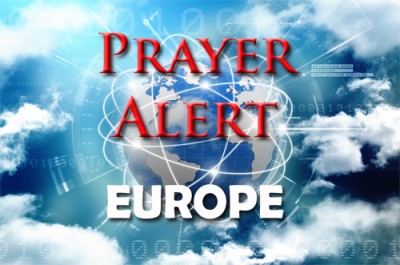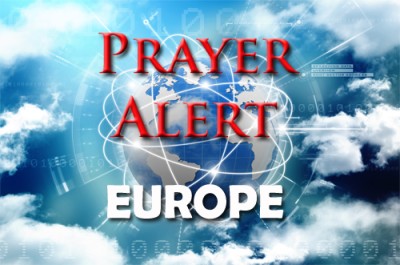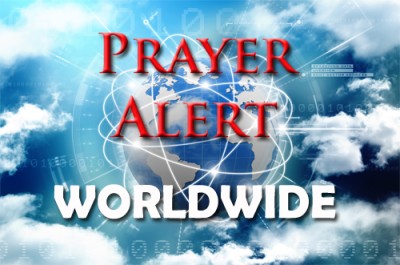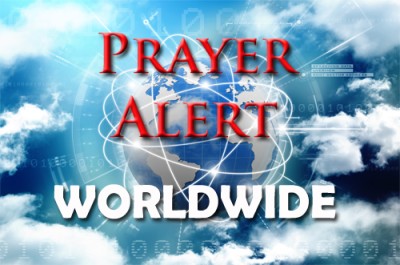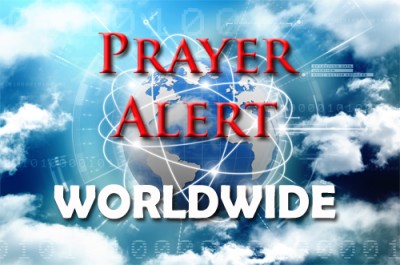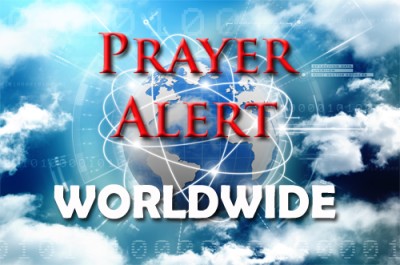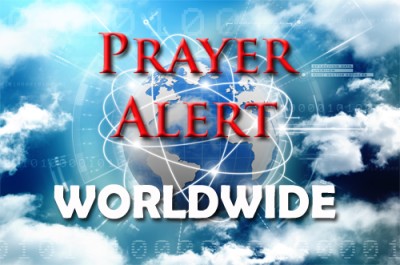France: Macron’s gamble looks like backfiring
27 Jun 2024France's political future is uncertain as Marine Le Pen’s far-right National Rally (RN) leads opinion polls ahead of parliamentary elections on 30 June. Emmanuel Macron faces potential ‘cohabitation’ with an opposing prime minister, or a fragmented chamber unable to form a stable majority. The polls give RN at least 35% in the first round, with a left alliance at 29% and Macron's centrists around 20%. A high turnout is expected. RN could possibly win more than half the 577 seats being contested. Le Pen is already planning to challenge Macron's authority, especially regarding military decisions: her candidate for prime minister, Jordan Bardella, opposes sending long-range missiles to Ukraine. Current prime minister Gabriel Attal is seeking to highlight RN's divisiveness and the left’s sectarian policies. A final debate offers a last chance to sway voters.
Russia: 20+ killed in terrorist attacks
27 Jun 2024At least twenty people have been killed in a series of shootings in Dagestan on 24 June. The attacks targeted a synagogue, an Orthodox church, and a traffic police post. Among the victims were fifteen law enforcement officers and civilians, including an Orthodox priest. The synagogue and church were set on fire before the attackers fled. The authorities say that five gunmen were later shot dead, and two sons of a local district head were arrested. The regional governor called it a ‘day of tragedy’ and declared three days of mourning in the predominantly Muslim region. Russia's national anti-terrorism committee attributed the attacks to ‘terrorists’, though no group claimed responsibility. This incident follows a major attack on a concert hall in Moscow three months ago, which killed 145 people.
Following violent protests in which 22 people were killed, president William Ruto has announced he will not sign a finance bill proposing new taxes. The bill, which aimed to raise funds to pay off debt, has faced widespread opposition from Kenyans struggling economically. On 25 June thousands of protesters stormed parliament, an action which Ruto called ‘treasonous’. In the chaos which ensued, the police and military were accused of brutality, with human rights groups reporting abductions and hundreds of injuries. Acknowledging the ‘widespread dissatisfaction’, Ruto admitted the need for a national conversation on managing the country's affairs together. The high court has suspended the military deployment and ordered the release of all protestors. Many young voters who supported Ruto in 2022 now oppose his reforms, feeling betrayed by the economic hardships. He has been criticised for not adopting a more conciliatory approach, and widespread protests continue: see
Ayatollah Ali Khamenei has issued a veiled warning to reformist presidential candidate Masoud Pezeshkian, criticising those who believe progress depends on the USA. Pezeshkian supports restoring the 2015 nuclear deal with world powers, unlike his hard-line opponents who demand terms favouring Iran. Khamenei has also urged high voter turnout for the election on 28 June, which analysts say could benefit Pezeshkian. There was a record low turnout in the parliamentary elections in March, and voters have expressed widespread apathy as Iran faces an economy crushed by Western sanctions and after widespread anti-government protests in recent years. Pezeshkian, previously unknown to the public, has garnered significant support. However, hard-liners remain critical, especially after the collapse of the nuclear deal in 2018. If no candidate wins over 50% of the vote, a runoff may be required.
A usually staid swearing-in procedure for Indian parliamentarians turned controversial when veteran opposition legislator Asaduddin Owaisi chanted ‘Jai Palestine’ after taking his oath. ‘Jai’, meaning victory in Sanskrit, can be translated as ‘Long live’. He was accused by colleagues from the ruling BJP of violating his constitutional pledge by showing loyalty to another nation, a charge he denied. During the ceremony, Owaisi swore his oath in Urdu, pledging loyalty to the country’s constitution - but then chanted ‘Jai Bhim, Jai Meem, Jai Telangana, Jai Filisteen’. Each slogan represents various communities and regions: ‘Jai Bhim’ for Dalits, ‘Jai Meem’ referring to his party AIMIM, ‘Jai Telangana’ for his home state, and ‘Jai Filisteen’ for Palestine. This incident, amid India's complex political landscape, highlights his advocacy for minority and Dalit rights. He has been an MP from Hyderabad since 2004 and president of AIMIM since 2008, and is known for his fiery oratory in Parliament.
Five years after Bougainville’s decisive vote for independence from Papua New Guinea (PNG), frustrations are growing due to the stalled political process. Over 97% of the autonomous region’s approximately 300,000 residents voted for independence in a 2019 referendum. However, the change requires ratification by PNG’s parliament, which has not yet occurred. Talks broke down last year over disagreements on the ratification process; Bougainville wants a simple majority vote, while PNG insists on a two-thirds majority. Both parties have agreed on an international moderator, but progress remains slow. Bougainville’s president Ishmael Toroama is pressing PNG to fulfil its promises, as residents express deep frustration over the delays. Bougainville has long sought independence, especially following protests against the environmental and social impacts of a copper mine and the subsequent civil war from 1989 to 1998. A 2001 peace agreement led to autonomous governance in 2005 and then to the referendum.
Many Hondurans are celebrating what they see as a rare instance of accountability for corruption among the nation's ruling class. Juan Orlando Hernandez, the country’s former president, has been sentenced to 45 years in prison after being convicted on drug and weapons charges. He had been found guilty by a Manhattan jury in March of accepting millions of dollars in bribes to protect cocaine shipments destined for the USA, despite his public stance against drug trafficking. Hernandez, who served as president from 2014 to 2022, maintained his innocence at the sentencing, claiming he was wrongfully accused. Prosecutors had sought a life sentence, arguing that his actions facilitated large-scale drug trafficking and associated violence. They said he had used drug money to bribe officials and manipulate election results in 2013 and 2017. His brother, Tony Hernandez, was also sentenced to life in prison in 2021 on drug charges.
A viral video shows a pastor, Ed Newton, pausing mid-sermon to engage with Anthony, a homeless man who interrupted with expletives to compliment Newton's shoes. Surprised, Newton gently addressed him, emphasising the need for respect due to the children present. Anthony then revealed he had been suicidal that morning before Michael, a church attendee, brought him to the service, saving his life. Deeply moved, the congregation raised $5,000 for Anthony. This remarkable act of kindness resulted in 35 people deciding to accept Christ that day. Newton and the church continue to support Anthony, including arranging medical help; they hope this incident will inspire believers to remember God's love for everyone. The interaction demonstrates how one act of kindness can change lives and inspire a community.
